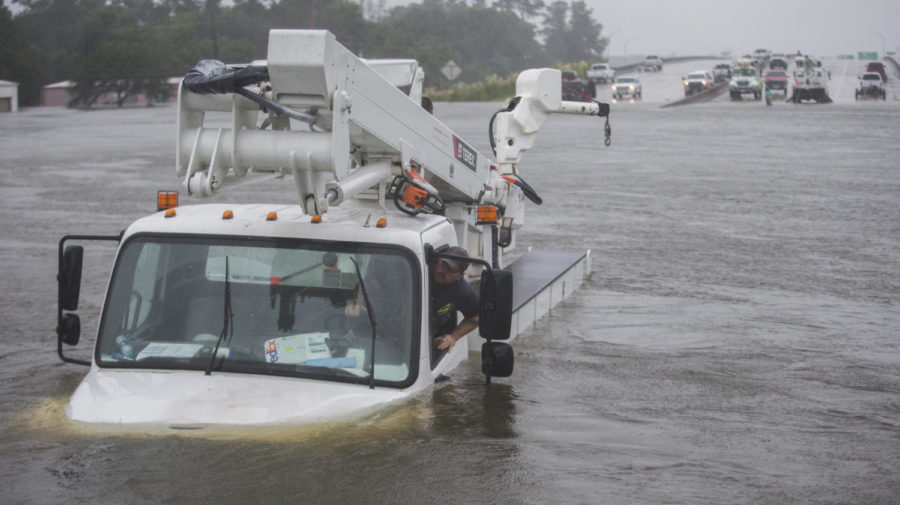In the aftermath of last fall’s elections, many on Twitter who had opposed President Donald Trump’s campaign blamed Florida — one of the states that gave the Republican an electoral victory. But Floridians, it seems, are just as quick to condemn the residents of other states that voted red.
Kenneth Storey — a visiting professor of sociology at the University of Tampa, originally from Orlando — stirred up a Twitter controversy of his own this week when he suggested that the devastation caused by Hurricane Harvey in southeastern Texas was retribution for the state’s electoral vote.
“I dont [sic] believe in instant Karma but this kinda feels like it for Texas,” Storey said in a now-deleted tweet. “Hopefully this will help them realize the GOP doesn’t care about them.”
Within two days, Storey’s university employer released a statement announcing that he would be relieved of all duties immediately. The university emphasized that the content of Storey’s private tweet didn’t reflect the school’s opinion of the disaster in Texas.
“We condemn the comments and the sentiment behind them, and understand the pain this irresponsible act has caused,” it read.
Storey’s sentiments, more or less dismissing the scale of the tragedy in Texas because of the state’s electoral vote, were unquestionably misguided, callous and indefensible. But the University of Tampa’s reaction was excessive — and the apparent lack of concern from the usual defenders of free speech on campuses is alarming.
While Storey’s tweet included phrasing that was questionable, to say the least, his point largely stands that the current Republican administration has already done much to intensify the damage from Hurricane Harvey. Trump revoked an Obama-era regulation earlier this month requiring that government structures in the region be better equipped to withstand hurricane weather. Trump also ended a federal program in March that helped local governments prepare for extreme weather events related to climate change.
But even if none of this were the case, it nevertheless remains that Storey made his comments about the natural disaster on a private Twitter account. He did not make his observations on behalf of the University of Tampa, nor did he receive official sanction or an official platform for his statements.
If freedom of speech is sufficient excuse for a university to invite and amplify far-right voices, such as Milo Yiannopoulos and Ann Coulter, it’s difficult to understand why a university employee wouldn’t be allowed to have the same liberties — especially when acting as a private individual.
Kenneth Storey undeniably made an unwise decision as a private individual to tweet political antipathy toward the victims of Hurricane Harvey in Texas. But that alone shouldn’t be a reason to axe him from a university position, especially if universities truly want to represent a free intellectual environment.


